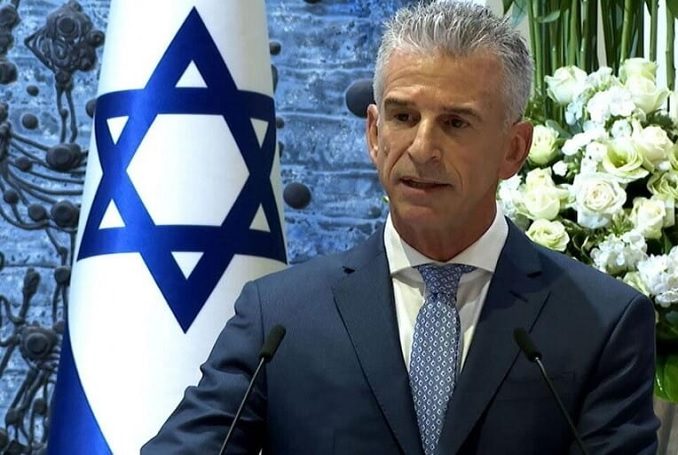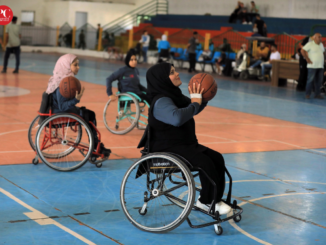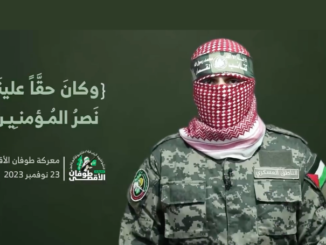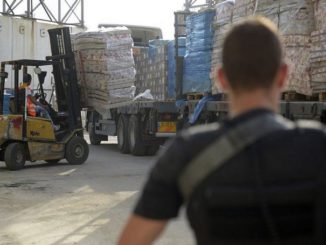
According to Israeli officials, the rest of the delegation will join Barnea if significant progress is made.
The Israeli Broadcasting Corporation (KAN) reported on Friday that David Barnea, the head of the Israeli intelligence agency Mossad, traveled to Doha without the rest of the negotiating delegation.
According to KAN, Barnea’s aim is to resume negotiations for a prisoner exchange deal and a ceasefire in Gaza.
Israeli officials reportedly said that these negotiations are expected to be lengthy, potentially taking up to a month. The rest of the delegation will join Barnea if significant progress is made.
On Wednesday, the Palestinian movement Hamas announced that it had headed a response to the ceasefire proposal. Israeli officials reportedly indicated that the response has given mediators hope, though many issues still need resolution. The specifics of these issues were not disclosed.
On Thursday, Israeli Prime Minister Benjamin Netanyahu approved sending the negotiating team to Doha after Israel received a response from Hamas regarding a proposed prisoner exchange agreement.
Neither Israel, Hamas, nor the mediators have released details of the response provided by Hamas on Wednesday.
➡️ Mossad chief David Barnea heads to Doha to discuss a hostage swap and Gaza cease-fire with Qatar's PM
Israeli media reports talks may take up to a month for a breakthrough https://t.co/4FU32W8RwK pic.twitter.com/WvasXUQp0m
— Anadolu English (@anadoluagency) July 5, 2024
Potential Breakthrough
Reuters news agency reported on Friday that an American delegation would also participate in the Doha meetings.
An American official stated that Hamas had made a significant amendment to its position, potentially advancing the negotiation process and laying the groundwork for a detainee agreement and a ceasefire in Gaza.
However, the official noted that the agreement is unlikely to be finalized within a few days, with outstanding issues revolving around the implementation of the agreement.
An Israeli official also expressed optimism about reaching an agreement following Hamas’s latest response, acknowledging the difficulty of the terms but emphasizing they should not obstruct the deal.
Another official indicated that the success of the agreement depends on Netanyahu’s decision.
Closer than Ever
Israeli Channel 14 cited an army official on Thursday as stating that the military leadership is prepared to accept any deal with Hamas to end the war, prioritizing cessation over terms.
The official added that the military plans to switch to targeted raids post-war, though he acknowledged this would not necessarily lead to a definitive victory.
For his part, Israeli Defense Minister Yoav Gallant said that an agreement with Palestinian factions in the Gaza Strip regarding a prisoner exchange is closer than ever.
“We are closer to an agreement than ever before,” Israel’s Channel 12 quoted the defense minister as saying in a meeting with families of Israeli prisoners in Gaza on Wednesday evening.
Ongoing Genocide
Currently on trial before the International Court of Justice for genocide against Palestinians, Israel has been waging a devastating war on Gaza since October 7.
According to Gaza’s Ministry of Health, 38,000 Palestinians have been killed, and 87,445 wounded in Israel’s ongoing genocide in Gaza starting on October 7.
Moreover, at least 11,000 people are unaccounted for, presumed dead under the rubble of their homes throughout the Strip.
Israel says that 1,200 soldiers and civilians were killed during the Al-Aqsa Flood Operation on October 7. Israeli media published reports suggesting that many Israelis were killed on that day by ‘friendly fire’.
Palestinian and international organizations say that the majority of those killed and wounded are women and children.
The Israeli war has resulted in an acute famine, mostly in northern Gaza, resulting in the death of many Palestinians, mostly children.
The Israeli aggression has also resulted in the forceful displacement of nearly two million people from all over the Gaza Strip, with the vast majority of the displaced forced into the densely crowded southern city of Rafah near the border with Egypt – in what has become Palestine’s largest mass exodus since the 1948 Nakba.
Later in the war, hundreds of thousands of Palestinians began moving from the south to central Gaza in a constant search for safety.
(PC, AJA)








